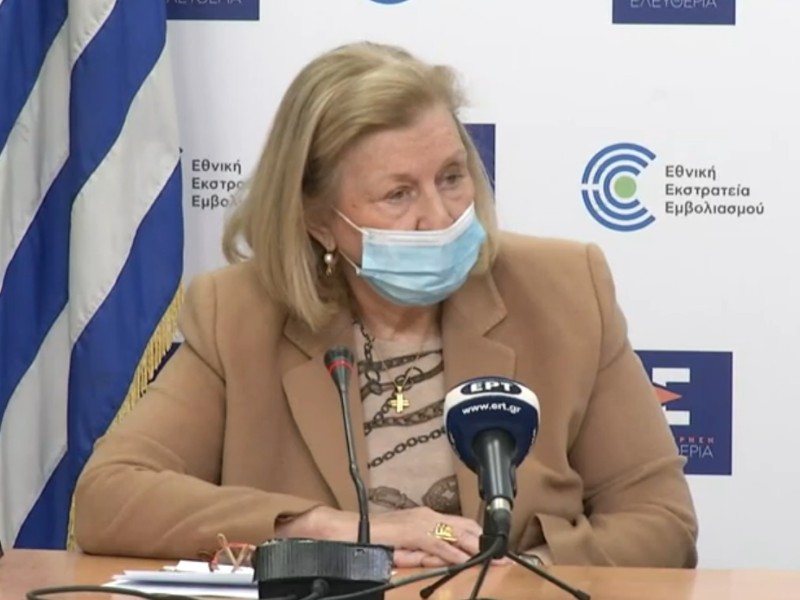With a spate of EU countries having suspended administration of the Oxford-AstraZeneca COVID-19 vaccine due to inconclusive indications of a possible connection of the vaccine to thrombosis in a minuscule percentage of those who received the vaccine, Greece has said it will continue to use it in its ongoing rollout.
Use of the AstraZeneca vaccine in Greece will continue “steadily and with confidence”, the head of the Greek National Vaccination Committee, Maria Theodoridou, told a televised news conference today.
Theodoridou along with members of the National Committee on COVID-19 have been stressing over recent days that the evidence of a correlation between inoculation with the AstraZeneca vaccine and thrombosis is minimal and inconclusive.
She said the National Vaccination Committee had formally recommended earlier the continuation of the vaccination rollout with use of the AstraZeneca vaccine as scheduled.
A European Medicines Agency (EMA) report is expected to issued on 18 March on isolated thrombosis and embolism incidents that have led several EU and other countries to temporarily suspend use of the company’s vaccine.
The Greek health ministry’s secretary general for primary health care, Marios Themistokleous, a neurologist who is in charge of the vaccination rollout, said that overall fewer than four percent of scheduled appointments for inoculations using the AstraZeneca vaccine have been cancelled.
However, Themistokleous presented data indicating that the percentage rose sharply to about 15 percent of scheduled appointments today, and he attributed that to recently mounting public concerns about the safety of this particular vaccine.
Themistokleous said at the news conference that Greece is currently expecting delivery of 500,000 doses of the AstraZeneca vaccine by the end of this month and another 450,000 in April.
Vaccinating high-risk groups
People who are in high-risk groups for contracting or dying from SARS-CoV-2 can start booking their vaccination appointments online as of March 19.
Themistokleous said that there are about 215,000 people nationwide in the first group of people to be vaccinated due to underlying high-risk health issues.
People suffering from specific current or chronic conditions – such as organ transplants, cancer, renal failure, immunosuppression and Down syndrome – will be given high priority.
The online platform for vaccination appointments is scheduled to open for people aged 70-75 on 26 March and for those in the 65-69-year-old age bracket in early April.
Theodoridou conceded “it is quite difficult to locate these patients” and the only way to track them is through their prescriptions.




